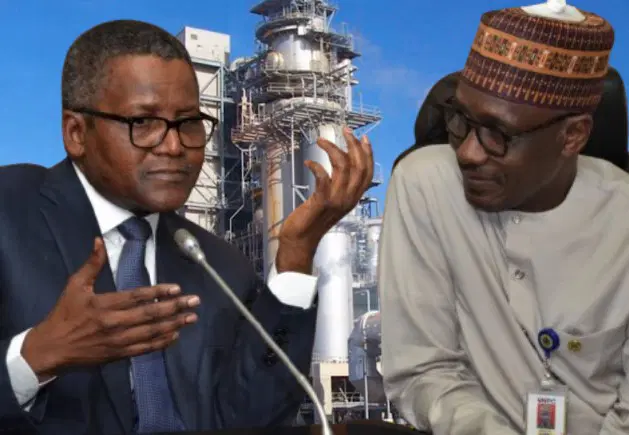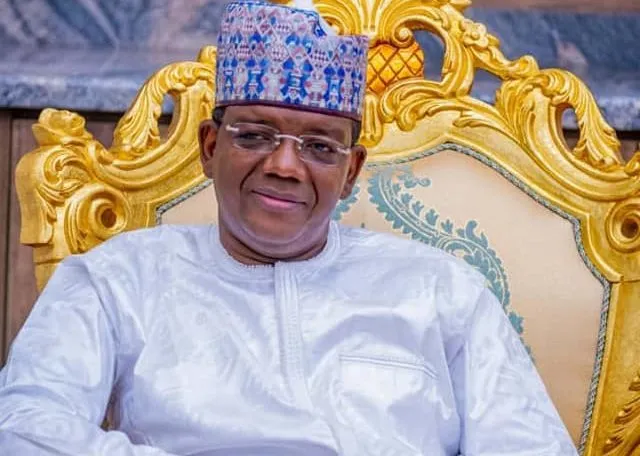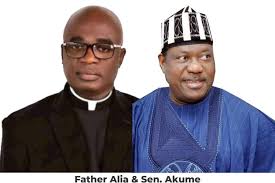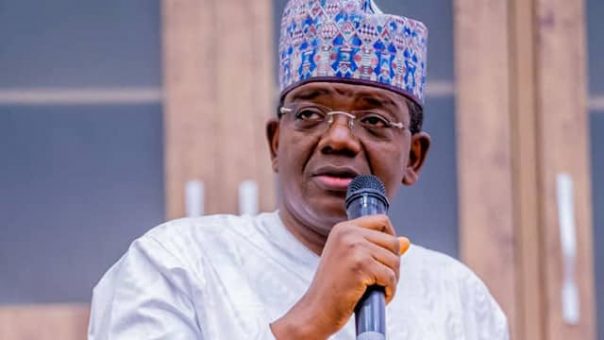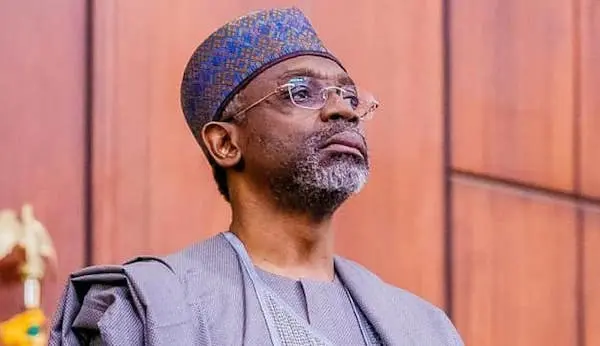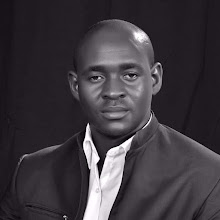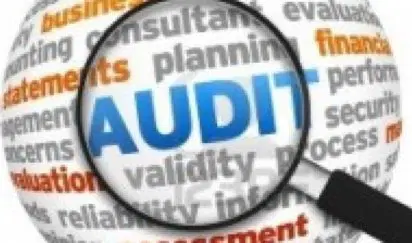By Igwe Donald
Nigeria’s oil sector is on the cusp of transformation, with fresh perspectives sparking dynamic discussions that reveal the exciting potential for collaboration between stakeholders and the pursuit of national economic growth. Dangote Refinery’s recent press statement has ignited a lively debate about NNPCL’s visionary strategy. The clash between these two titans has exposed a complex web of corruption, greed, and political maneuvering that threatens to undermine Nigeria’s energy security.
The controversy has gained considerable attention due to the critical role of the Dangote Refinery in shaping the future of Nigeria’s energy industry. Despite claims of patriotic intent, the actions of NNPCL, under Kyari’s leadership, have been perceived by many as counterproductive and even conspiratorial.
Based on recent developments, particularly statements and counterstatements from Dangote and NNPCL, it becomes apparent that the battle is more than a mere industry dispute, it is a power struggle with national and international ramifications. Moreover, Kyari’s involvement in past corrupt dealings and the importation of substandard fuel adds a dark layer to an already convoluted situation.
At the heart of this conflict lies a simple question: what does the NNPCL truly want? The answer, as it turns out, is far from simple.
The Genesis of the Conflict
The inauguration of Dangote’s refinery was a landmark achievement for Nigeria’s energy sector. It was a symbol of hope, promising to end the country’s dependence on fuel importation, reduce foreign exchange strain, and address persistent fuel shortages that have plagued Nigeria for decades. Aliko Dangote’s vision was clear: to build a refinery that could refine over 650,000 barrels of crude oil per day, capable of meeting both local and regional demands for petroleum products.
However, this grand ambition did not sit well with all stakeholders, especially the NNPCL. The company, despite its monopolistic control of the country’s oil resources, has faced significant criticism for inefficiency, corruption, and a failure to provide Nigerians with affordable and consistent access to fuel. Under Mele Kyari’s leadership, these issues have only worsened. Instead of collaborating with Dangote to address the nation’s fuel challenges, NNPCL has repeatedly sabotaged the efforts of the refinery, questioning the quality of its products and attempting to control its pricing structure.
In an attempt to undermine Dangote’s progress, NNPCL began circulating narratives that the refinery would sell fuel at an exorbitant price of N898 per liter, a claim which Dangote promptly dismissed as “misleading and mischievous.” In a press statement, Dangote clarified that the refinery had sold its products to NNPCL in dollars, offering significant savings compared to the imports the NNPCL typically brings in. By doing so, Dangote was not only addressing the country’s fuel needs but also reducing the financial burden on Nigerians by keeping fuel prices reasonable.
NNPC: A Legacy of Exploitation and Its Reluctance to Change
What many don’t know is that, the current drama between NNPCL and Dangote is not an isolated incident but rather a symptom of a much larger problem that has plagued Nigeria for decades: the deep-rooted culture of exploitation within the oil sector. For far too long, NNPC (now NNPCL) has operated as a behemoth of inefficiency and corruption, enabled by a political elite more concerned with personal enrichment than national development.
Established in 1977, the Nigerian National Petroleum Corporation was intended to ensure that Nigeria could maximize its oil wealth for national development. Instead, the organization has often functioned as a vehicle for personal and political gain, mired in scandals involving missing funds, corrupt contracts, and fraudulent deals with foreign oil companies.
The current leadership under Mele Kyari is a continuation of this legacy. While Kyari portrays himself as a reformist, his actions suggest otherwise. His involvement in questionable fuel importation deals, particularly from Malta, is not just a footnote in his career but a key indicator of his intentions. His decisions, both public and behind closed doors, appear designed to maintain the status quo that benefits a select few while keeping the majority of Nigerians in a perpetual state of fuel scarcity, high prices, and dependence on foreign products.
NNPCL’s reluctance to embrace local refining capabilities, as demonstrated in its antagonism toward Dangote Refinery, suggests that the corporation is not interested in Nigeria becoming self-sufficient in fuel production. Instead, it seeks to retain its grip on the industry, using crude oil sales as leverage while engaging in backdoor dealings with international partners who continue to siphon Nigeria’s wealth abroad.
Mele Kyari and the Maltese Syndicate of Corruption
To fully grasp the depths of the ongoing conflict, one must look into the murky dealings of Mele Kyari and his long history of involvement in corrupt activities. Kyari has been repeatedly fingered in cases of importing substandard fuel into Nigeria. These dealings, often orchestrated through Malta-based syndicates with refineries abroad, have cost Nigeria billions in revenue while exacerbating the country’s energy crisis.
Kyari’s involvement in these syndicates points to a larger conspiracy designed to undermine local refining efforts, such as Dangote’s, and maintain Nigeria’s dependence on foreign fuel imports. The motive is clear: Kyari and his foreign partners stand to profit enormously from keeping Nigeria trapped in a cycle of importation, even as local refineries remain underutilized or sabotaged.
The Dangote Refinery, in this context, represents an existential threat to Kyari’s interests. By producing fuel locally at a fraction of the cost of imported fuel, Dangote’s refinery could potentially collapse the entire importation scheme, cutting off the illicit profits that Kyari and his associates have long enjoyed. This explains the relentless efforts to discredit Dangote’s refinery, first by questioning its quality and later by attempting to manipulate its pricing.
Dangote’s Fight for Transparency and the Battle for Control
Faced with NNPCL’s calculated sabotage, Dangote launched a counteroffensive, exposing the corporation’s true intentions. In a series of media appearances, Dangote debunked the claims of substandard products by presenting evidence of his refinery’s superior quality compared to the imported fuels that Nigerians had long been forced to endure. By making his case publicly and transparently, Dangote effectively dismantled the quality-based narrative being pushed by NNPCL.
However, this was only the beginning. Realizing that they could not win the battle over quality, Kyari and NNPCL shifted focus to pricing. Their strategy was simple: manipulate the public into believing that Dangote’s refinery would price its products excessively high, thereby allowing NNPCL and other foreign marketers to raise their own prices to exorbitant levels, all while blaming Dangote for the hikes and become frustrated to give up.
The hypocrisy in this approach is glaring. NNPCL, which sells crude oil to Dangote’s refinery just as it does to foreign oil companies, has no business controlling the refinery’s pricing. Yet, in a blatant display of power, the corporation demanded that it would set the price at which Dangote could sell his fuel. This action of theirs has is an absurd situation, but one that reveals NNPCL’s deeper motives: to maintain control over the pricing of fuel in Nigeria and keep Dangote’s refinery from offering cheaper, more accessible alternatives to the public.
The International Implications: Challenging the Global Oil Cartel
This battle between Dangote and NNPCL has obviously not gone unnoticed by the global oil industry. For decades, international oil companies have profited from Nigeria’s dependence on imported fuel, with major deals brokered between Africa and Europe that ensure these companies’ continued dominance over the continent’s energy sector. The success of Dangote’s refinery, however, threatens to disrupt this dynamic.
By producing high-quality fuel at a lower cost, Dangote’s refinery could potentially redirect the flow of oil trade in Africa. Countries with weak or devalued currencies, which currently struggle to buy oil in dollars, would find a more affordable option in Nigeria’s locally refined products. This would not only boost Nigeria’s influence in the African oil market but also diminish the power of European oil companies that have long held a stranglehold on the continent’s resources.
This potential shift in the oil trade has likely played a role in the aggressive stance taken by NNPCL and its foreign partners. As the refinery begins operations, there is a palpable sense of urgency among those who stand to lose the most from its success. Kyari’s alliance with these foreign powers, which include oil marketers and refinery owners in places like Malta, underscores the extent to which Nigeria’s energy future is being shaped by external forces with little regard for the country’s best interests.
The Future of Nigeria’s Energy Sector
In any society where corruption reigns unchecked, the role of the public becomes crucial. The ongoing feud between NNPCL and Dangote has made it clear that corporate power and government influence can often work hand in hand to distort the truth and manipulate public perception. This is why patriotic Nigerians must play a central role in demanding transparency and holding our leaders accountable.
As the battle between Dangote and NNPCL continues to unfold, it is clear that the stakes are incredibly high. At the heart of the conflict is not just the future of Nigeria’s energy sector but the broader question of who will salvage the country’s economic destiny. For decades, Nigeria has been held back by corrupt leaders and foreign interests who have exploited its resources for personal gain. Dangote’s refinery represents a challenge to this status quo, offering a vision of an independent Nigeria that can provide for its own energy needs without relying on foreign imports.
While Dangote’s refinery promises a solution to the decades-long fuel crisis, its survival depends on more than just its operational success. It depends on the will of the Nigerian people to recognize the larger forces at play and to stand up against the manipulations of entities like NNPCL. Public pressure has already shown its power—Dangote’s media campaign successfully exposed NNPCL’s dubious tactics and forced them to retract their claims. This is a victory for transparency, but it must be the first of many.
Yet, as NNPCL’s actions have shown, there are powerful forces determined to prevent this vision from becoming a reality. Mele Kyari’s sinister motives, driven by a desire to maintain control over Nigeria’s oil industry and protect the illicit profits of his foreign allies, have led to a concerted effort to sabotage the Dangote Refinery and undermine its potential benefits for the Nigerian people.
In the face of these challenges, Dangote’s determination to fight back offers a glimmer of hope. His willingness to engage the public, expose NNPCL’s corruption, and champion the cause of transparency and accountability sets him apart from the many business and political leaders who have allowed Nigeria’s energy sector to be exploited for decades.
The outcome of this battle is far from certain. However, one thing is clear to all: Nigeria stands at a critical crossroads. The decisions made in the coming months will determine whether the country can finally break free from the chains of oil dependency and corruption or whether it will remain trapped in a cycle of exploitation, benefiting a few at the expense of the many. The Dangote Refinery holds the key to unlocking a brighter future, but only if it can overcome the formidable obstacles placed in its path by those who seek to maintain the status quo.
A Call for Institutional Reform and Accountability
The NNPCL-Dangote conflict highlights the urgent need for institutional reform in Nigeria’s oil sector. As long as entities like NNPCL are allowed to operate with impunity, prioritizing personal gain over national interest, Nigeria’s energy sector will remain dysfunctional. Reforming NNPCL will require more than just leadership changes, it will require a complete overhaul of its operational structure, with a focus on transparency, accountability, and efficiency.
At this point, President Bola Ahmed Tinubu must step in, he must rescue Nigeria from the hands of devourers. Mr President must ensure that this reform must start with strengthening regulatory bodies tasked with overseeing the oil sector. These bodies must be empowered to hold NNPCL and other players accountable, ensuring that they operate in the best interest of the Nigerian people. Additionally, there must be stricter penalties for corruption within the industry, with real consequences for those who engage in illicit activities like fuel importation scams and price manipulation.
Furthermore, Nigeria must develop a robust framework for supporting local refining efforts. This includes providing incentives for other private investors to follow in Dangote’s footsteps, fostering competition, and ensuring that no single entity—whether NNPCL or Dangote—holds a monopoly over the country’s oil resources. A diversIfied and competitive oil sector is key to ensuring that Nigeria can meet its energy needs while protecting consumers from price gouging and supply shortages.
Conclusion
As this reality keeps unfolding, Nigerians must brace themselves for the challenges that lie ahead. The battle between Dangote and NNPCL is far from over, and the outcome will have profound implications for the country’s future. Mele Kyari’s corrupt dealings, his collusion with foreign oil marketers, and his attempts to sabotage Dangote’s refinery all point to a deeper crisis within Nigeria’s oil sector.
Yet, despite these challenges, there is reason to hope. Dangote’s refinery represents a new beginning, a chance for Nigeria to take control of its own energy future and end the cycle of dependence and exploitation that has held it back for so long. However, achieving this goal will require vigilance, transparency, and a willingness to confront the powerful interests that seek to maintain their grip on Nigeria’s oil industry.
In the coming months, as fuel prices shift and the propaganda war intensifies, Nigerians must remember one thing: the future of their country is in their hands. If they stand by Dangote’s vision for a self-sufficient Nigeria, they can reclaim control over their energy destiny. If they allow NNPCL’s manipulations to succeed, the cycle of dependency and exploitation will continue. The choice is clear, but the road ahead is fraught with challenges. The rainy season is indeed upon us—whether it brings renewal or devastation depends on the actions taken today.
Nigerians must remain vigilant as fuel prices begin to fluctuate and as NNPCL’s propaganda continues to spread. Informed citizens can resist the temptation to accept false narratives at face value and must seek out the truth behind the machinations of the oil industry. Furthermore, Nigerians should advocate for stronger regulatory mechanisms that prevent corporate sabotage, while also pushing for more significant oversight of the oil sector to prevent future exploitation by foreign interests and corrupt officials.
The path forward will not be easy, but it is clear that the stakes are too high for inaction. Nigerians must demand more from their leaders and corporations. They must hold Mele Kyari and NNPCL accountable for their actions and insist on a future where Nigeria’s oil resources benefit the many, and not the few. As Dangote’s refinery begins production, the hope is that it will usher in a new era of energy independence and prosperity for Nigeria. But this hope will only be realized if the forces of corruption and exploitation are confronted head-on and defeated.
Right now, the future of Nigeria’s energy sector hangs in the balance. It is imperative that the government intervene to put an end to the corrupt practices of the NNPCL and ensure that Dangote Refinery is allowed to operate freely.
By doing so, Nigeria can take a significant step towards a brighter future, one in which its citizens have access to affordable, reliable energy. The stakes are high, but the rewards are even greater.
Donald is a public affairs analyst and wrote this piece from Agege, Lagos State
